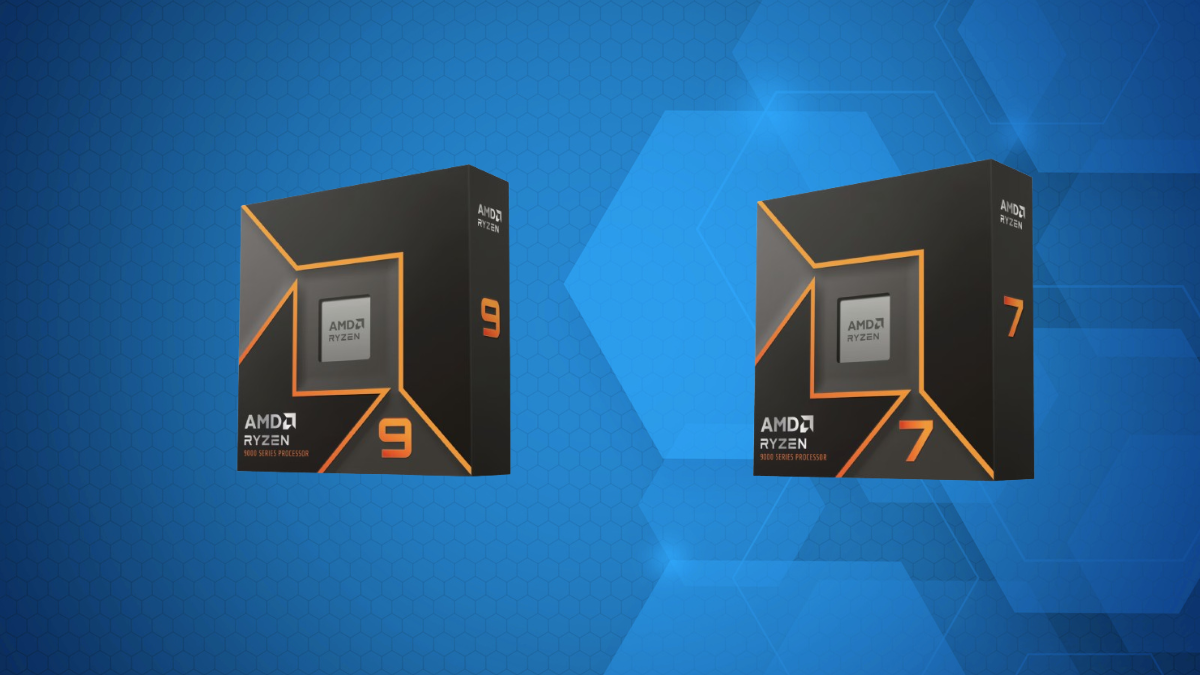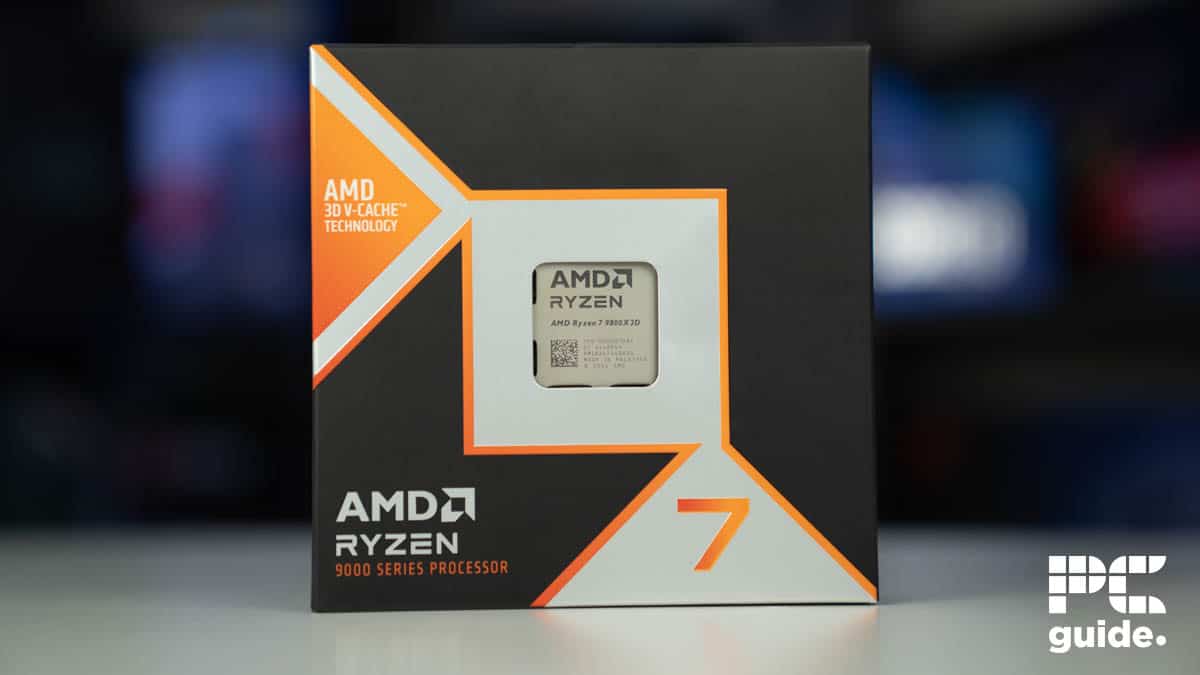Ryzen 9 9950X3D vs Ryzen 7 9800X3D specs comparison – how do they compare?

Table of Contents
It isn't news that the Ryzen 7 9800X3D made huge waves upon its release. It offers exceptional performance and can be overclocked, which enabled it to take the title for the best gaming processor from the Ryzen 7 7800X3D; however, with the Ryzen 9 9950X3D announced, the reign of 9800X3D might be over!
We've reviewed the Ryzen 7 9800X3D, and once we have the 9950X3D in-house, we'll put it through its paces in our PC Guide Testing Lab and update this article with its real-world performance. That being said, we do have some information, thanks to AMD's CES presentation, which we'll use to gauge how different these processors are from each other.
Prime Day is finally here! Find all the biggest tech and PC deals below.
- Sapphire 11348-03-20G Pulse AMD Radeon™ RX 9070 XT Was $779 Now $739
- AMD Ryzen 7 7800X3D 8-Core, 16-Thread Desktop Processor Was $449 Now $341
- ASUS RTX™ 5060 OC Edition Graphics Card Was $379 Now $339
- LG 77-Inch Class OLED evo AI 4K C5 Series Smart TV Was $3,696 Now $2,796
- Intel® Core™ i7-14700K New Gaming Desktop Was $320.99 Now $274
- Lexar 2TB NM1090 w/HeatSink SSD PCIe Gen5x4 NVMe M.2 Was $281.97 Now $214.98
- Apple Watch Series 10 GPS + Cellular 42mm case Smartwatch Was $499.99 Now $379.99
- ASUS ROG Strix G16 (2025) 16" FHD, RTX 5060 gaming laptop Was $1,499.99 Now $1,274.99
- Apple iPad mini (A17 Pro): Apple Intelligence Was $499.99 Now $379.99
*Prices and savings subject to change. Click through to get the current prices.
Now that the rumored release date for the 9950X3D comes closer to the beginning of March, we’re getting more leaks and information on the CPU. We get both an insight into the performance of the 9950X3D and its pricing before it has been confirmed as to when it’s coming.
So, let’s take a closer look at what we know so far and if the Ryzen 9 9950X3D could truly leave the 9800X3D in the dust.
Spec comparison
We’ve listed their specifications below to see the hardware difference between the two processors.
| CPU | Ryzen 9 9950X3D | Ryzen 7 9800X3D |
| Architecture | Zen 5 | Zen 5 |
| Socket | AM5 | AM5 |
| Process | TSMC 4nm FinFET | TSMC 4nm FinFET |
| Cores | 16 | 8 |
| Threads | 32 | 16 |
| Base clock speed | 4.3 GHz | 4.7 GHz |
| Boost clock speed | 5.7 GHz | 5.2 GHz |
| L3 cache | 144 MB | 96 MB |
| TDP | 170W | 120W |
| Integrated graphics | AMD Radeon Graphics | AMD Radeon Graphics |
Since these processors belong to the same family, there isn't a fundamental difference between them. However, since one is a Ryzen 9 processor, it has more cores and threads to work with and a much higher L3 cache capacity. Besides that, the Ryzen 7 has a much lower TDP, given its comparatively fewer cores.
Clock speed
The first difference between these processors is the clock speed. The Ryzen 7 9800X3D has a 4.7 GHz base clock speed, which is 0.4 GHz faster than the 9950X3D. However, the 9950X3D has a 0.5 GHz faster boost clock of 5.7 GHz compared to the 9800X3D’s 5.2 GHz.
That being said, the 9950X3D has the edge in boost clock speed. It might seem like the 9800X3D has a better base clock speed, which would give it an advantage, but the 9950X3D has twice the cores working at 5.2 GHz, which should result in a significant performance gap, something that even overclocking the 9800X3D wouldn't be able to bridge.
Cores and threads
There is no comparison between the two processors regarding cores and threads, as the 9950X3D has double the amount, meaning it can handle multi-threaded tasks much better than the 9800X3D.
As for single-core performance, both of these CPUs have the same architecture and CPU processes, meaning we can expect somewhat similar performance, but the 9950X3D has a higher boost clock speed and, in gaming, should have the edge due to its massive 3D V-Cache.
L3 cache
The L3 cache is what the X3D processors are all about, and there is a huge difference in the capacity of these CPUs’ L3 caches. The 9950X3D boasts a humongous 144 MB L3 cache, while the 9800X3D has 96 MB.
So, while there isn't a difference in architecture or technology between these CPUs, the sheer capacity should give the 9950X3D much better gaming performance and any other tasks that can use a higher L3 cache capacity.
TDP
Unsurprisingly, the 9950X3D has a higher TDP of 170W than the 9800X3D's 120W, as it has double the cores operating at a much faster boost clock. That being said, during our testing of the 9950X, enabling PBO ramped up its thermal output to the point that even the AIO cooler couldn't keep up with it.
So, with the 9950X3D also being able to be overclocked, that is something that you'll have to consider, as a high-end CPU needs a robust CPU cooler. On the other hand, we didn't run into such issues with the 9800X3D, and if you're considering this processor, we recommend checking out some of the best CPU coolers for it.
9950X3D vs 9800X3D leaked performance
Being a higher-tier processor, we’d expect the Ryzen 9 9950X3D to bring a lot more performance to the table over the 9800X3D. With double the cores and threads, more power, and clock rates, it won’t be surprising. However, we won’t know to what extent until the reviews come out with benchmarks showcasing it.
That is, if it wasn’t for the leaks coming out here and there, as we’ve seen Geekbench results crop up for the 9950X3D. It achieves a single-core score of 3,363 and a multi-core score of 20,465. In comparison, the 9800X3D gets 3,204 and 18,838, respectively, which means it falls behind the new flagship by 5% and 9% in this scenario.
However, that is in one case of benchmark and not the release performance, so it is likely to change later on, so take these with a grain of salt.
Ryzen 9 9950X3D vs 9800X3D expected price
We won't have to wait much longer before we get the official price of the 9950X3D, but based on previous releases and pricing history, we can make an educated guess. The Ryzen 9 9950X was released with a $649 price tag.
If we go back a generation, the 7950X and 7950X3D both had an MRSP of $699. So, we expected the Ryzen 9 9950X3D to range between $649 and $699.
If the leaked pricing from Newegg is to be trusted, it might be the same price as its predecessor, $699. The 9800X3D came out with a price tag of $479, making the Ryzen 9 model $220 more expensive to buy.
Which CPU should you get?
Currently, the Ryzen 7 9800X3D is the best gaming processor, although AMD claims that 9950X3D will take over that title and be an excellent chip for content creation. We know for sure that the 9800X3D has excellent gaming performance and productivity due to the changes in its design.
That being said, the 9950X3D, like the 9950X, should be excellent for severely resource-intensive tasks, and the larger L3 cache should also give it an edge in gaming performance, but for the casual user, it is most likely overkill as all the overhead and performance can't be utilized unless you're squeezing it out.
So, if you're short on cash and want a gaming processor that can handle pretty much anything you throw at it, the 9800X3D is the way to go, but if you're a hardware enthusiast and want the best of the best, the 9950X3D should serve you well.


